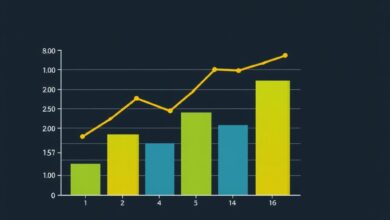How to choose the right broker for your investments

Prioritize security and reputation when selecting a trading platform. A well-established entity with robust regulatory compliance ensures that your funds and personal information remain protected. Look for platforms that offer multi-factor authentication and encryption to enhance safety.
Evaluate the range of services provided by various firms. Some cater exclusively to forex, while others encompass stocks, commodities, and cryptocurrencies. Diverse offerings allow flexibility in asset allocation tailored to individual strategies.
Examine account types available on each platform. Different accounts may present varying fees, leverage options, and minimum deposit requirements. Opt for an option that aligns with your financial goals while minimizing unnecessary costs.
Consider user experience as well; an intuitive interface can significantly affect trading efficiency. Platforms should facilitate seamless navigation between features without overwhelming new users or cluttering advanced tools for experienced traders.
Assessing Broker Fees
Evaluate commission structures carefully; some platforms charge per trade, while others may offer commission-free options with higher spreads. Calculate potential costs based on your trading frequency and volume.
Consider account maintenance fees that can erode returns over time. Look for brokers offering zero or low monthly fees, especially if you plan to keep your account balance below a certain threshold.
Examine withdrawal and deposit charges. Certain platforms impose fees for transferring funds, which could affect your overall investment strategy. Prefer services that provide free or minimal-cost transactions.
Analyze margin rates if you’re planning to trade on leverage. Understand the interest charged on borrowed funds, as high rates can significantly impact profitability.
Review any additional service fees associated with research tools, market data, or premium features. Ensure the value of these services justifies their costs in relation to your specific trading needs.
Transparency is key; choose brokers who clearly outline all applicable fees without hidden costs. This clarity will help you make informed decisions and avoid unexpected expenses in your trading journey.
Understanding Account Types
Evaluate account options offered by platforms. Common types include individual brokerage accounts, retirement accounts, and managed accounts. Each serves distinct purposes and features tailored services.
Individual brokerage accounts provide flexibility for buying and selling assets without restrictions on withdrawals or contributions. They typically allow access to a wide array of investment options such as stocks, ETFs, and mutual funds.
Retirement accounts, such as IRAs and 401(k)s, offer tax advantages for long-term saving. Contributions may be tax-deductible, while growth is often tax-deferred until withdrawal, enhancing overall returns.
Managed accounts involve professional management where brokers handle investment decisions based on your risk tolerance and financial goals. These can come with higher fees but may benefit those seeking expert guidance.
Assess minimum balance requirements associated with each account type; some platforms waive fees if balances exceed a certain threshold. Regularly review services included in account offerings to ensure alignment with investment strategies.
Ultimately, understanding these distinctions allows for informed choices that align closely with financial objectives and preferences regarding service levels and costs.
Evaluating Trading Platforms
Examine platforms closely based on security features. Ensure that they utilize advanced encryption technology and two-factor authentication to protect your account from unauthorized access. A robust security infrastructure is paramount in safeguarding sensitive data.
Analyze the range of services offered. Look for platforms that provide essential trading tools, such as real-time data feeds, charting software, and research resources. These services can enhance decision-making processes and improve trading strategies.
Compare fees associated with using each platform. Transaction costs, withdrawal charges, and any hidden fees can significantly impact overall returns. Prioritize platforms that maintain transparency regarding their fee structures.
Assess user experience by testing demo accounts or reading reviews from active users. A user-friendly interface simplifies navigation and enhances trading efficiency, which is crucial when executing trades quickly.
Lastly, verify the variety of asset classes available on each platform. Access to diverse investment options allows for better portfolio diversification, which can mitigate risks associated with market volatility.
Researching Customer Support
Prioritize brokers offering multiple channels for customer service. Look for options like live chat, phone support, and email assistance. Availability during market hours is critical.
- Response Time: Test response times by contacting support with a specific question. A reliable broker should respond within minutes.
- Knowledge Base: Evaluate the quality of their FAQ section and educational resources. Comprehensive materials indicate a commitment to client education.
- Languages Offered: If you prefer communication in a specific language, confirm that support is available in that language.
- Security Protocols: Inquire about measures taken to protect your information during interactions with customer service representatives.
Seek out reviews focusing on customer service experiences from existing clients. This feedback provides insight into reliability and responsiveness.
- Check online forums and review sites for user testimonials regarding support services.
- Engage in community discussions to gauge overall satisfaction with the broker’s assistance.
A broker’s commitment to effective customer care can significantly enhance your trading experience. Ensure they are equipped to assist you promptly and efficiently whenever needed.
Checking Regulatory Compliance
Verify that any trading platform adheres to the regulations set forth by reputable financial authorities. Organizations such as the SEC (Securities and Exchange Commission) in the United States or FCA (Financial Conduct Authority) in the UK ensure that brokers operate within legal frameworks aimed at protecting investors. Look for licenses displayed prominently on the broker’s website, which indicate compliance with these regulatory bodies.
Assess whether the broker is part of investor protection schemes. For example, in the UK, clients of FCA-regulated firms are protected up to £85,000 through the Financial Services Compensation Scheme (FSCS). This adds an extra layer of security for your funds.
Review any disciplinary history or compliance records available through regulatory websites. This can reveal if a broker has faced penalties for non-compliance or misconduct, providing insights into their reliability and ethical standards.
Evaluate how well a platform implements anti-money laundering (AML) policies and know-your-customer (KYC) procedures. A robust approach indicates a commitment to security and integrity in services offered.
Finally, stay updated on changes in regulations that might affect your chosen trading platform. Regularly consult industry news sources to remain informed about compliance issues impacting brokers and their services.







